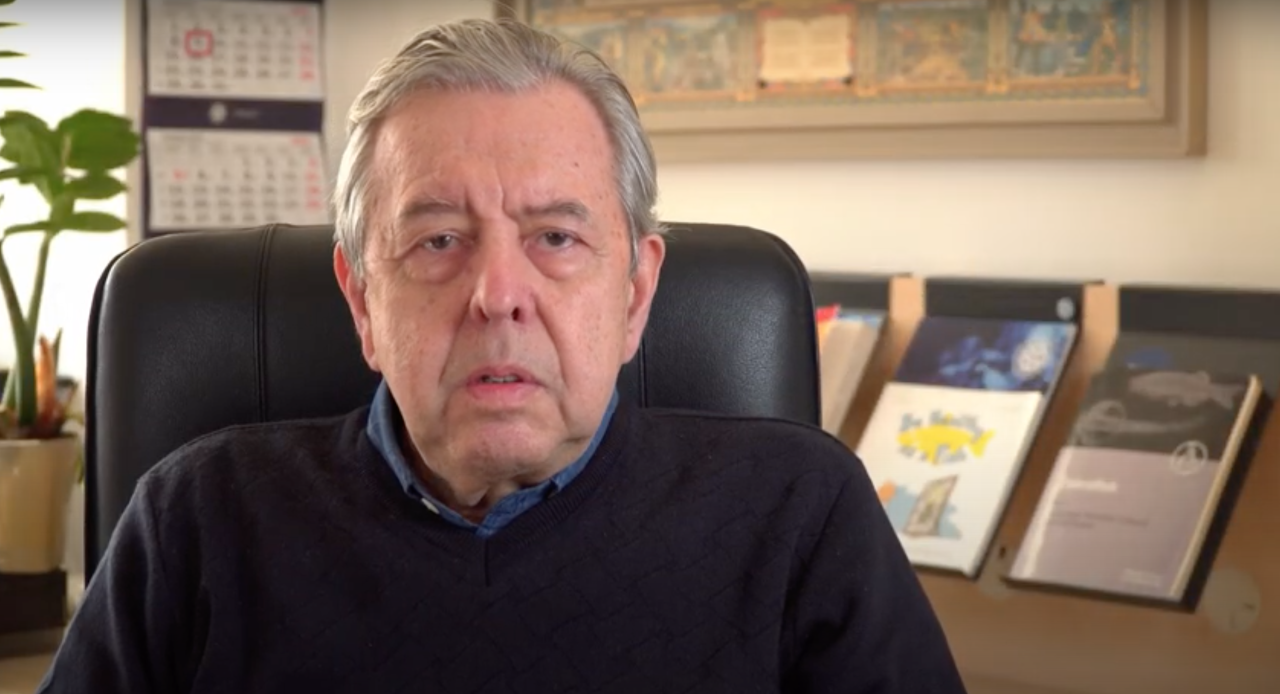Meet the PI

Vladimir Korzh, PhD
Visiting Professor
International Institute of Molecular and Cell Biology
Warsaw, Poland
Questions:
What is the research focus of your lab?
Most recently, my group in the laboratory of neurodegeneration of the International Institute of Molecular and Cell Biology in Warsaw (PI - Prof. Jacek Kuznicki) mainly studied the mechanisms of hollow organs formation, including the brain ventricular system, otic vesicle and the role of potassium channels in their development.
How long have you been working with zebrafish? How long have you had your own lab?
I started working with zebrafish in 1990 in the Anders Fjose’s lab in Tromsø, Norway. After a fruitful postdoc period in the Thomas Edlund’s lab in Umeä, Sweden I got my lab in 1995 in the newly established Institute of Molecular Agrobiology in Singapore and in 2002 moved it to the Institute of Molecular and Cell Biology (also in Singapore). Before zebrafish, since 1976, as a PhD student in the Alexander Neyfakh lab in Moscow, USSR, I worked with the loach Misgurnus fossilis, which is a sort of “the temperate climate zebrafish”, but with more complex genetics.
Getting to know you better
Where were you born/where did you grow up?
I was born in China, on the Soviet military base Port-Arthur (currently Lüshunkou, 旅顺å£åŒº). I grew up in Zhitomir, Ukraine.
Tell us something about yourself in one sentence.
Being rather curious about zebrafish development or, in the eyes of scientific advisory boards, “not very focused”, I am always afraid of not meeting a deadline, so I take on challenges as soon as possible.
Science
Which of the current projects in your lab you are most excited about?
The role of K channels in development of hollow organs and neurological disease is rather puzzling because of diverse and sometimes opposing developmental phenotypes caused by induced mutations in genes encoding different subunits of these channels. While using the zebrafish as a model animal in these studies, it seems we see a way more than analysis of the linked neurological disease imply. A question we face is, whether these differences could be species-specific or the neurological disease illustrates only a fraction of phenotypes caused by defects of underlying mechanism?
What advice would you give to someone considering a career in science/research?
In short, be curious and brave, think outside the box, collaborate. In long, read Santiago Ramon i Cajal’s book “Advice for a Young Investigator” (1898) and/or watch E. O. Wilson talk (https://www.ted.com/talks/e_o_wilson_advice_to_a_young_scientist?language=en).
Which part of the PI job you enjoy the most? Why?
I like to be involved in a process of merging the new results with an existent body of knowledge and advancing it. I enjoy guiding young colleagues and observing how the “ugly ducklings” transform into competent professional scientists. Why? Satisfying curiosity is a powerful intellectual endorphin…in science one may expect to feel this effect more often.
Outside of work
What do you enjoy doing outside of work/lab?
In the midst of my career, I suddenly discovered myself as a historian of science. Through some digging in the old books and articles, which were way older than those in the Pubmed, I was able to answer some of the questions, which teased my imagination since I was a PhD student in the Koltsov Institute of Developmental Biology in Moscow or even earlier as an undergrad of the Kiev State University. I guess that by now I have reached a stage when I am facing a need to address some very fundamental questions from my kindergarten period.…
What career would you have liked if you were not a scientist?
On a couple of my life crossroads I chose to remain on a “scientific” path, so I did not become a radio host or professional DJ or political consultant. Such career alternatives looked rather real in those days. Since I like tinkering, sometimes I dream of being a mechanic of precision instruments.
Present situation
How has the COVID-19 pandemic affected your lab and work?
Before it started, we did most of the work funded by one grant, which now is finished. Hence, it was slightly less painful. We just started with another grant. As expected everything is very slow, and this makes me worried (see answer 4).

Mu Yu, PhD
Principal Investigator
Institute of Neuroscience (ION)
Center for Excellence in Brain Science and Intelligence Technology
Chinese Academy of Sciences
Shanghai, China
Questions:
What is the research focus of your lab?
The main focus of my lab is to characterize neural dynamics on the whole-brain level to understand important brain functions, such as object recognition, decision-making, etc. We believe that rather than local and modular activities, concerted efforts of different brain regions and cell types are required to support these functions. To uncover and describe the neural dynamics, we develop new behavioral assays in virtual reality and combine them with whole-brain functional imaging and in vivo electrophysiology.
How long have you been working with zebrafish? How long have you had your own lab?
I have worked with zebrafish seamlessly for 15 years -- through my years as graduate student, postdoctoral fellow, and now independent PI. I enjoy watching the neural dynamics that come out of this little creature, both in the form of single cell patch-clamp and whole-brain functional imaging. I believe zebrafish as a model organism will play a pivotal role along the journey to a comprehensive understanding of the brain.
Getting to know you better
Where were you born/where did you grow up?
I was born in a small town called Ya'an, which also happens to be the hometown of the giant pandas in Sichuan, China. But later I grew up in Garzê, a Tibetan county in western Sichuan. I spent about 7 years in Xiangcheng and 6 years in Kangding, both towns located in Garzê. My childhood in the Tibetan region has always held a special place in my heart. Looking back at my formative years, I remember how living on the plateau felt as if being raised up against the sky. Also I spent tremendous amount of my leisure time after school observing nature – the clouds, ants, birds, and gathering food from the wilderness (berries, fruits, insects etc.).
Tell us something about yourself in one sentence.
I am always ready to make changes in my life as well as work -- from diets and lifestyle to paradigms and methods, as long as they demonstrate benefits that are supported by research.
Science
Which of the current projects in your lab you are most excited about?
My students have successfully established a paradigm to study decision-making in zebrafish. We are currently analyzing the whole-brain imaging dataset to explain the important neural computations: how information is encoded, maintained and ultimately guides choices on a larger timescale.
What advice would you give to someone considering a career in science/research?
Watch the experiments. Now that the data are collected semi-automatically, it can get boring to stare at the monitor -- but the answers we seek are blinking on it, hidden inside the behaviors and ephys and imaging data. I have made many interesting observations during experiments that do not readily pop out in post-hoc analysis.
Which part of the PI job you enjoy the most? Why?
I think the most enjoyable part is mentoring. Observing the students as they become more adept in research and life, providing guidance and nourishing their interests in science. It can get cumbersome but always turns out to be more rewarding.
Outside of work
What do you enjoy doing outside of work/lab?
I enjoy practicing yoga and meditation after work.
What career would you have liked if you were not a scientist?
Detective. I imagine that the responsibilities and methodologies of a successful detective to be very similar to those of a researcher: observing the external world, harnessing information to generate a hypothesis about the internal process behind the observations, and finally proving the hypothesis. I enjoy this kind of puzzle-solving.
Present situation
How has the COVID-19 pandemic affected your lab and work?
The biggest impact is that importing transgenic zebrafish becomes almost impossible. The original plan was to import ~20 lines from Janelia to start my lab, however it turned out that we had to generate most of the lines from scratch. It has been a lot of extra time and labor, although we were able to use the newest indicators and promoter lines.




